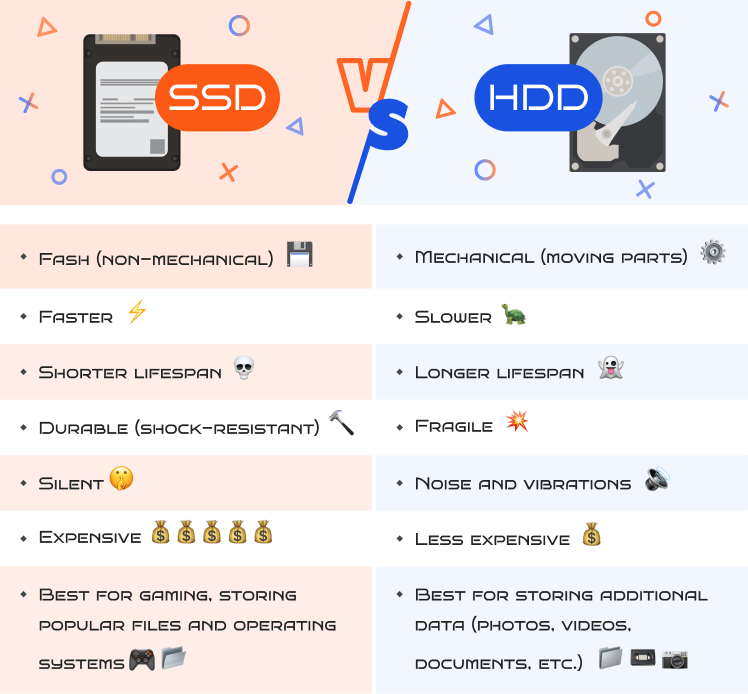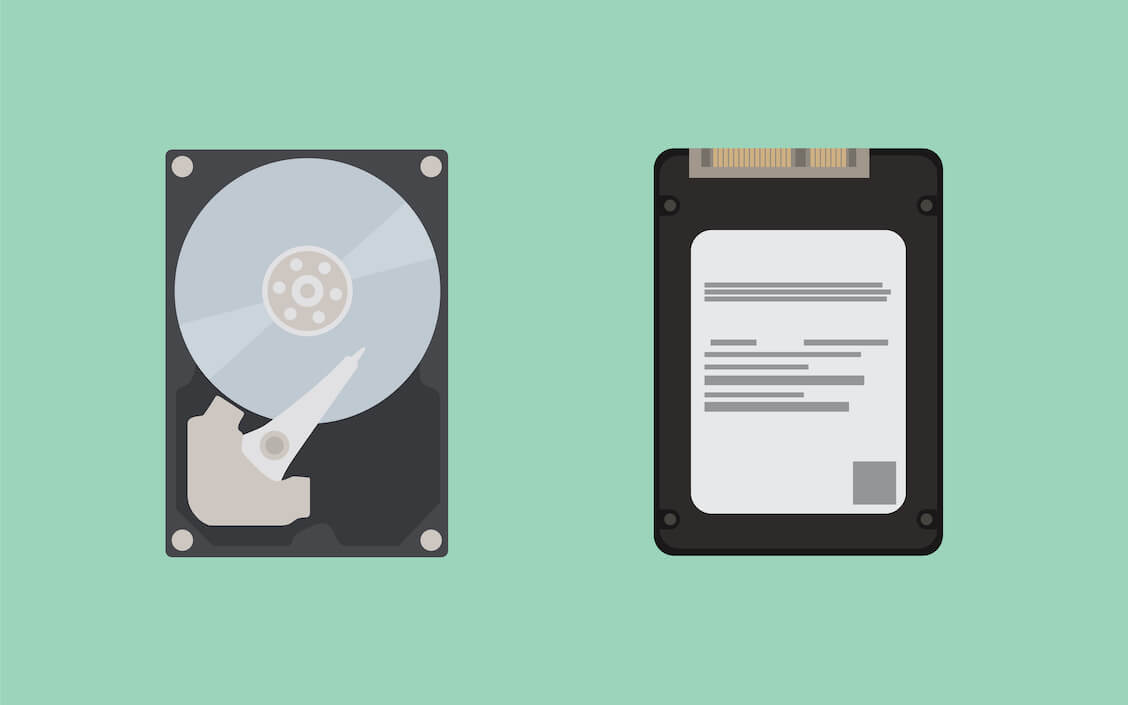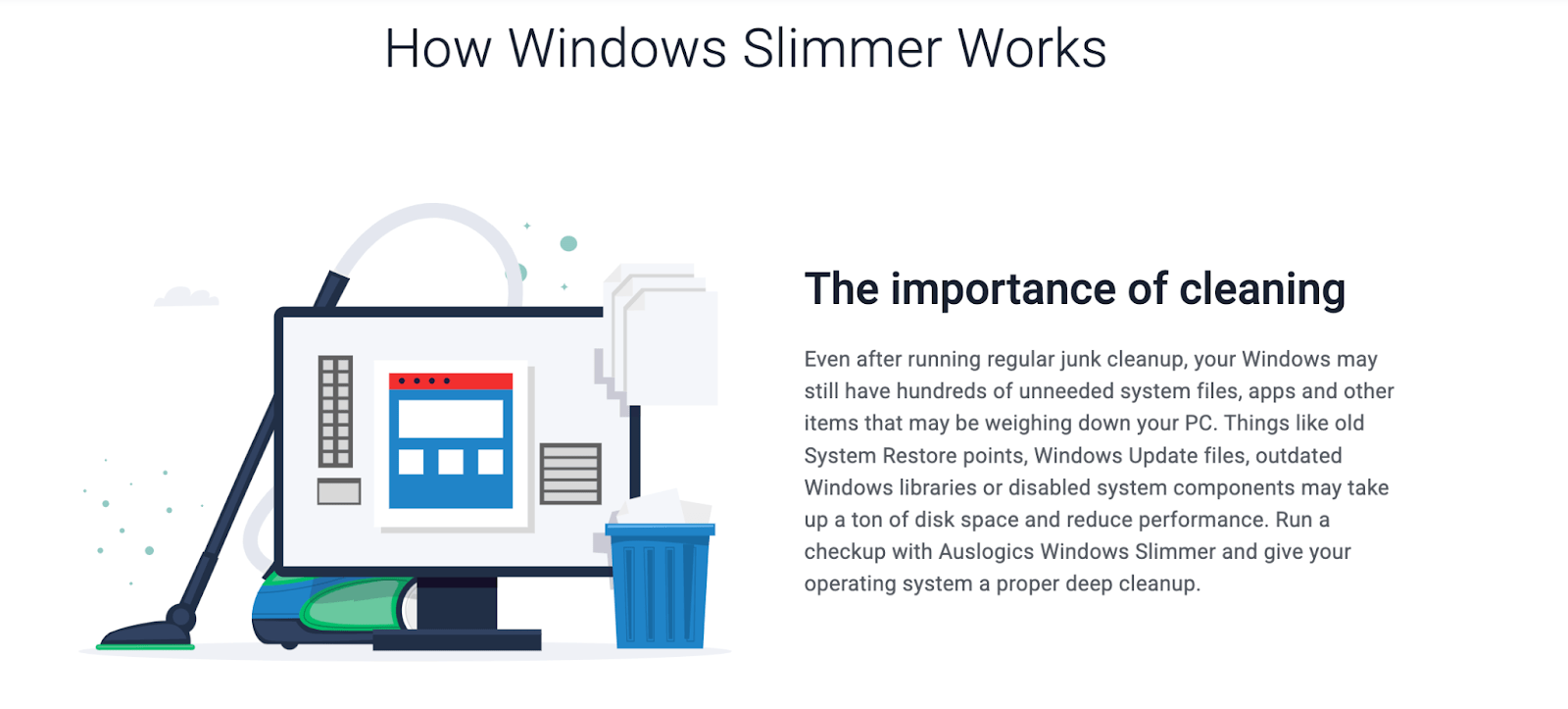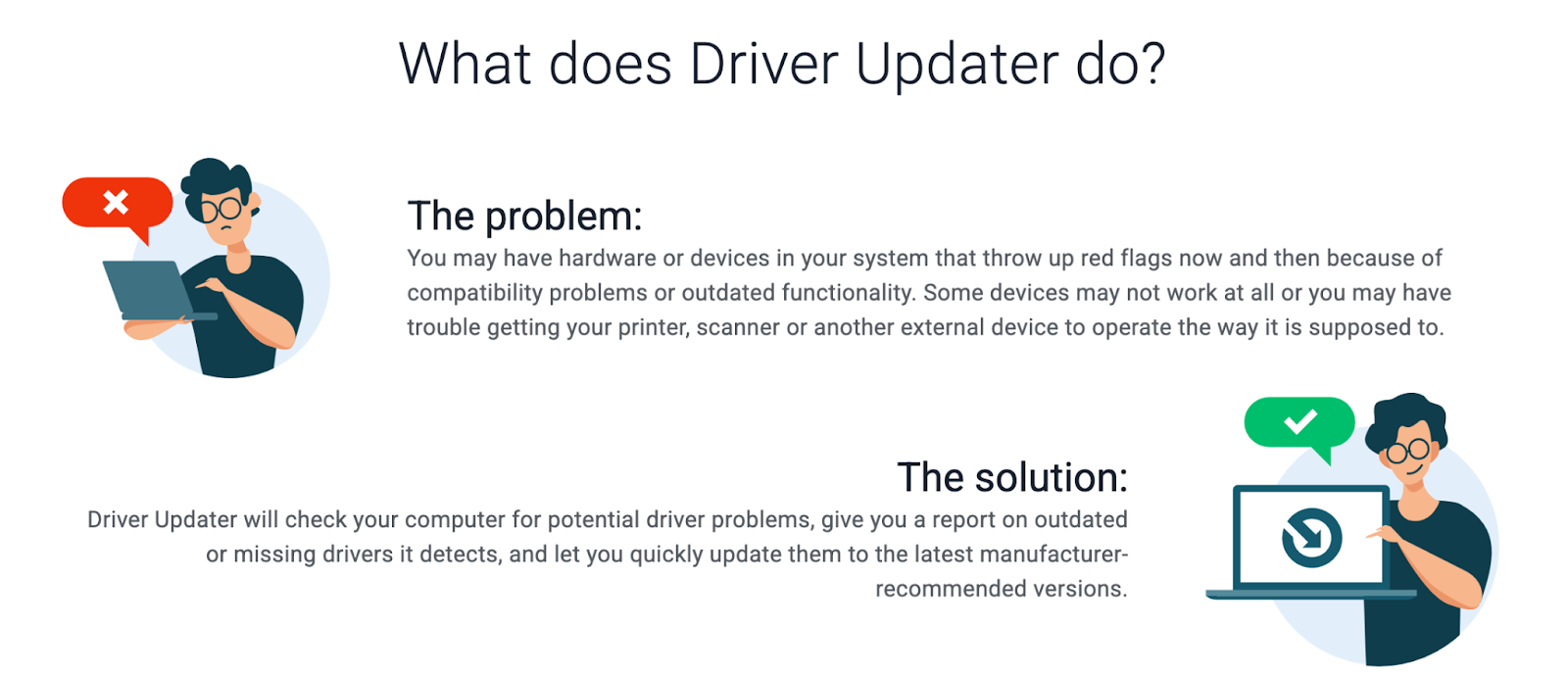Are you torn between choosing a Solid State Drive (SSD) or a Hard Disk Drive (HDD) for your storage needs? Explore the differences between SSDs and HDDs and get insights to help you make an informed decision.
Hard disk drives (HDDs) and solid-state drives (SSDs) are the two most important drives to understand. You may be wondering what the distinction is between an HDD and an SSD. Which drive should you use? Which type of drive is more prone to failure?
If you’re looking to upgrade your computer with a new drive, or if you’re curious about the best uses for either type of drive, a side-by-side comparison of each option is useful.
Keep reading this guide.
What Is an HDD?
A Hard Disk Drive (HDD) is a traditional storage device that uses magnetism to store and retrieve digital information.
The HDD is equipped with an arm that houses several “heads” (transducers) that read and write data to the disk.
It works in the same way as a turntable record player, with an LP record (hard disk) and a needle on an arm (transducers).
To access different data, the arm moves the heads across the surface of the disk. Because all of these components are “mechanical,” the hard disk is the computer’s slowest and most fragile component.
So how exactly does an HDD work?
Here’s a simplified explanation of how an HDD works:
Hard disk drives consist of:
- one or more magnetically sensitive platters,
- actuator arm with a read/write head on it for each platter,
- a motor to spin the platters and move the arms
- an I/O controller and firmware that instructs the hardware and communicates with the rest of the system.
Each platter is divided into concentric circles known as tracks. Sectors are logical units that divide tracks.
Each track and sector number generates a unique address that can be used to organize and find data. The data is saved to the nearest available area. Before the data is written, an algorithm processes it, allowing the firmware to detect and correct errors.
The platters spin at predetermined speeds (5,400 to 15,000 RPM (revolutions per minute)). These speeds are proportional to the read/write rates. The faster a hard drive can read and write data, the higher the pre-set speed.
When you ask your computer to retrieve or update data:
- the I/O controller tells the actuator arm where the data
- the read/write head gathers it by reading the presence or absence of a charge in each address
- If a request to update the data is received, the read/write head modifies the charge on the affected track and sector.
Latency is the amount of time it takes for the platter to spin and the actuator arm to locate the correct track and sector.
What Is an SSD?
A solid-state drive (SSD) is a new generation of computer storage device. These new drives employ a simple memory chip known as NAND flash memory, which has no moving parts and provides near-instant access.
An SSD’s memory chips are comparable to random access memory (RAM). Files are saved on a grid of NAND flash cells rather than a magnetic platter. Each grid (also known as a block) can hold between 256 KB and 4MB.
The controller of an SSD knows the exact address of each block, so when your PC requests a file, it is almost immediately available.
There is no need to wait for a read/write head to find the information it requires. Thus, SSD access times are measured in nanoseconds.
So how does an SSD work?
Solid-state drives have this name because, unlike a Hard Disk Drive (HDD), they do not use moving parts or spinning disks. Data is instead saved to a pool of NAND flash. NAND is made up of what are known as floating gate transistors.
Unlike DRAM’s transistor designs, which must be refreshed multiple times per second, NAND flash is designed to retain its charge state even when not powered on. As a result, NAND is a type of non-volatile memory.
NAND is not as fast as main memory, but it is hundreds of times faster than a hard drive. That’s why SSDs can operate at speeds far exceeding those of a typical HDD because they contain no moving parts.
HDD vs. SSD: What’s the Main Difference?
So, what’s the difference between SSD and HDD?
SSD vs. HDD: Speed
When comparing speed, SSDs have a significant advantage over HDDs. SSDs offer faster data access and transfer speeds due to their flash memory technology and lack of moving parts:
SSD Speed:
- SSDs provide much faster read and write speeds compared to HDDs. This means quicker boot times, faster app launches, and snappier file transfers.
- SSDs have extremely low random access time, which means they can quickly access data from any location on the drive.
- SSDs are great for quickly moving large files or media because they’re really good at reading and writing data in order. They make transferring data faster and more efficient.
HDD Speed:
- HDDs have spinning parts and moving heads that can cause delays and slower access times, unlike SSDs which are faster because they don’t have those mechanical limitations.
Overall, SSDs are significantly faster than HDDs when it comes to data access and transfer speeds.
SSD vs. HDD: Capacity
When comparing capacity, Hard Disk Drives (HDDs) generally offer higher storage capacities than Solid State Drives (SSDs). Here’s a breakdown of how the capacity of SSDs and HDDs differ:
SSD Capacity:
SSDs come in a wide range of storage capacities, including smaller capacities like 128GB or 256GB, as well as larger capacities like 1TB or even 4TB. However, compared to HDDs, the maximum capacity of consumer-grade SSDs tends to be more limited.
HDD Capacity:
HDDs are available in larger storage capacities, ranging from several hundred gigabytes (GB) to multiple terabytes (TB). This makes them suitable for users who require vast amounts of storage space for large files, media libraries, or data-intensive applications.
When deciding between SSDs and HDDs based on capacity, consider your specific storage requirements. If you require a large amount of storage space at an affordable price, HDDs may be the preferred choice. However, if you prioritize speed, performance, and reliability over sheer capacity, SSDs offer compelling benefits.
SSD vs. HDD: Price
When comparing prices, HDDs generally offer a more cost-effective storage solution compared to SSDs.
SSD Price
- SSDs tend to be more expensive per unit of storage capacity compared to HDDs. The cost difference is primarily due to the advanced flash memory technology used in SSDs, which offers faster performance and other benefits over HDDs.
HDD Price:
- HDDs are typically more affordable in terms of price per storage capacity. They offer a higher amount of storage space at a lower cost compared to SSDs.
SSD vs. HDD: Lifespan
When comparing lifespan, SSDs and HDDs have different characteristics. Here’s a breakdown of how the lifespan of SSDs and HDDs differ:
SSD Lifespan:
- SSDs have a limited number of write cycles, meaning each memory cell can only be written to a certain number of times before it may degrade.
- On average, consumer-grade SSDs can last for several years of typical usage.
HDD Lifespan:
- HDDs have moving parts, including spinning platters and mechanical read/write heads, which are more susceptible to mechanical failures over time.
- On average, HDDs can last anywhere from 3 to 5 years or more, depending on usage and conditions.
- However, it’s important to note that HDD failures can occur unexpectedly, and it’s recommended to regularly backup important data regardless of the drive’s age.
It’s important to emphasize that the lifespan of both SSDs and HDDs can vary depending on factors such as usage, workload, operating conditions, and the specific model and quality of the drive.
SSD vs. HDD: Other Differences
Apart from speed, capacity, price, and lifespan, there are several other differences between HDDs and SSDs which you need to consider:
- Noise and Vibration: HDDs produce noise and vibration due to their spinning platters and moving mechanical components. In contrast, SSDs have no moving parts, making them completely silent and free from vibrations.
- Power Consumption: SSDs are more energy-efficient compared to HDDs. SSDs require less power to operate, resulting in lower energy consumption and longer battery life for laptops and portable devices.
- Form Factor: SSDs are available in smaller and more compact form factors, such as M.2 drives, which are ideal for ultra-thin laptops and small form factor PCs. HDDs, on the other hand, are typically larger and bulkier in size.
- Weight: SSDs are lighter in weight compared to HDDs. This makes them advantageous for portable devices, where weight and portability are important considerations.
- Durability and Resistance: SSDs are more resistant to physical shocks and vibrations because they lack moving parts. This makes them better suited for use in rugged environments or situations where data integrity is critical.
- Fragmentation: HDDs can experience performance degradation due to file fragmentation over time. SSDs, on the other hand, do not suffer from fragmentation-related performance issues, as the access time to retrieve data is not affected by the physical location of the data on the drive.
HDD vs. SSD: Pros and Cons

- Speed: SSDs offer faster data access and transfer speeds, resulting in quicker boot times, faster file transfers, and snappier overall system responsiveness.
- Reliability: Since SSDs have no moving parts, they are more resistant to physical damage, making them more reliable and less prone to mechanical failures.
- Durability: SSDs are shock-resistant and better equipped to handle drops or jolts, making them ideal for portable devices or environments where physical damage is a concern.
- Energy Efficiency: SSDs consume less power compared to HDDs, resulting in improved battery life for laptops and reduced energy costs.
- Noiseless Operation: As SSDs have no spinning disks or moving components, they operate silently, contributing to a quieter computing experience.
- Cost: SSDs are generally more expensive per unit of storage compared to HDDs, making them less cost-effective for high-capacity storage needs.
- Limited Lifespan: While modern SSDs have improved their write endurance, they still have a finite number of write cycles before performance may degrade over time.
- Capacity: SSDs typically offer smaller storage capacities compared to HDDs, especially at affordable price points.
- Cost per Capacity: HDDs provide higher storage capacities at a lower cost per gigabyte, making them more suitable for bulk storage needs.
- Large Storage Options: HDDs are available in larger capacities, making them ideal for users with extensive media libraries, large file sizes, or data-intensive applications.
- Established Technology: HDDs have been around for a long time, with a proven track record of reliability and compatibility.
- Slower Speed: HDDs have slower data access and transfer speeds compared to SSDs due to mechanical limitations.
- Fragility: The mechanical nature of HDDs makes them more susceptible to damage from shocks, drops, or physical impact.
- Noise and Heat: HDDs produce noise and generate more heat due to their spinning disks and moving parts.
Choosing between an SSD and an HDD depends on your specific needs, budget, and priorities. SSDs excel in speed, reliability, and durability, while HDDs offer larger capacities at a lower cost. Assess your storage requirements and consider the trade-offs to make an informed decision.
How to Maintain Hard Drive Health
Maintaining the health of your hard drive is essential for ensuring optimal performance and longevity. Here’s a specific tip for hard drive maintenance:
- Think twice when downloading or installing software: a computer uses memory to run software and the hard drive to speed up load times. By limiting the amount of hard drive space used for unnecessary software, you can keep the drive and computer running quickly.
- Consider using a helpful tool like Auslogics Windows Slimmer to get rid of unneeded software that slows down your PC.
Download Auslogics Windows SlimmerThis tool cleans your PC from unneeded components and applications to make your Windows system more compact and efficient.
![]() How Windows Slimmer works?
How Windows Slimmer works?
Further Reading: So Easy to Do: How to Uninstall Programs and Apps on Windows 10/11?
- Download from trusted sources: Before downloading software from the internet, make sure it’s from a trusted source to avoid infecting your computer with a virus or malware.
- Keep your system updated: Regular updates, like updates for your operating system and drivers, help fix problems, make your computer safer, and improve performance. Updating drivers can make your computer more stable, prevent errors and crashes, and keep it secure. With Auslogics Driver Updater, updating your drivers is easy and only takes a few clicks.
Download Auslogics Driver UpdaterPrevent hardware errors and ensure problem-free device operation with this advanced tool that detects outdated drivers and safely gets them updated.
![]() What does Driver Updater do?
What does Driver Updater do?
Related: How to update device drivers on Windows 10 PC?
- Read user reviews: Take the time to read user reviews and ratings for the software you intend to install. This can provide insights into any potential issues or conflicts reported by other users.
- Clean up your PC: Over time, you’ll find that your PC has accumulated many unused programs, files, and other data that take up space and slow your PC. Regular maintenance and clean up of your PC helps to keep the system healthy and improve computer performance.
- Defragment your hard drive: this is an important step in keeping your HDD in good condition. Weekly defragmentation is recommended.
Also Read: A Beginner’s Guide to Disk Defragmentation
- Optimize your SSD: Solid State Drives slow down with age and eventually become slower. There are some simple things to optimize and speed up SSD in a safe way.
Auslogics BootSpeed already includes Windows Slimmer and Driver Updater, so you can download one software to fully take care of your computer, including HDDs and SSDs.
Related: Speed Up Slow Computer as a Pro – Introducing Auslogics BoostSpeed 13
FAQ
SSDs offer several advantages over HDDs, including faster data access and transfer speeds, improved performance, and better reliability.
This means that activities such as booting up the computer, launching applications, and accessing files will be much quicker with an SSD.
That’s why, if speed and performance are important factors for your storage needs, SSDs are the preferred choice over HDDs.
SSDs (Solid State Drives) are better than HDDs (Hard Disk Drives) for several reasons.
- SSDs are much faster at accessing and transferring data, which means your computer starts up quicker, files load faster, and the overall system feels more responsive.
- SSDs don’t have moving parts like HDDs, so they’re tougher and less likely to get damaged.
- SSDs are quieter and produce less heat than HDDs.
While SSDs offer numerous advantages, there are a few disadvantages to consider.
- SSDs tend to be more expensive per unit of storage compared to HDDs.
- The lifespan of an SSD is limited compared to an HDD.
- If an SSD fails, data recovery can be more challenging and costly compared to an HDD.
When it comes to gaming, an SSD is generally considered better than an HDD
- SSDs offer faster data access and transfer speeds, resulting in reduced game load times and faster level transitions.
- SSDs provide quicker file access, which can result in improved performance during gameplay, such as faster texture loading and reduced stuttering.
However, it’s important to note that SSDs generally offer less storage capacity. That’s why If you have a large game library or need a lot of storage space, think about pairing a smaller SSD for faster game loading with a larger HDD for additional storage.





